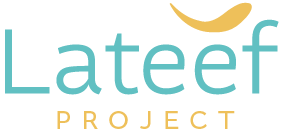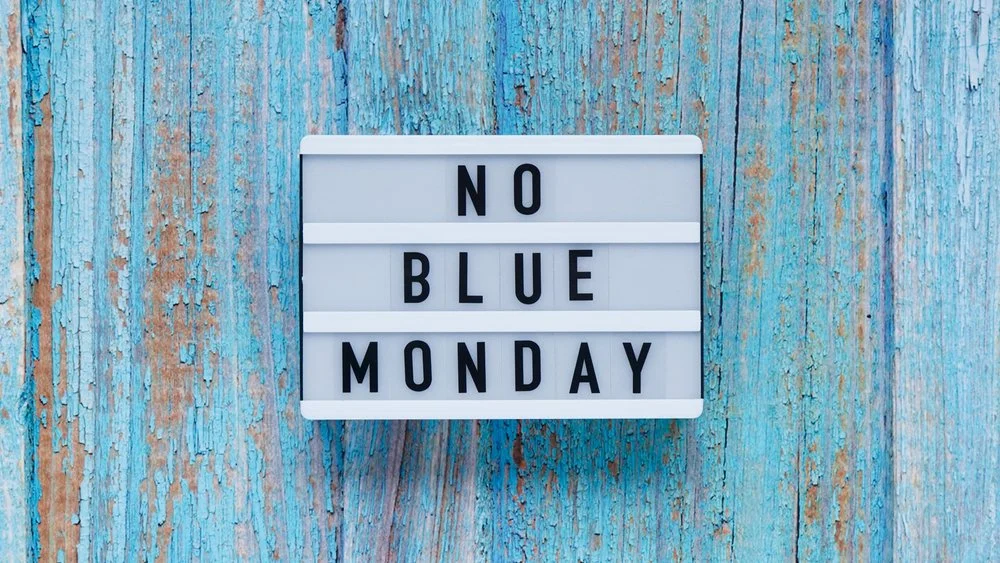Brew Monday - 16th January 2023
It has been suggested that the 3rd Monday in January is the saddest day of the year, Blue Monday. Yes, it's winter, and yes, after the excitement of Christmas, people are asking what now? However, as The Samaritans have rightly pointed out, the saddest times for people are in fact, individual. ‘Blue’ has been renamed by The Samaritans, to ‘Brew’ Monday as part of a campaign for improving people's mental health. It is about encouraging people all over the UK to reach out, grab a cuppa and check in with someone.
Brew Monday this year, is on the 16th January 2023 and Lateef Project is encouraging people to get involved.
The reality is, we all need checking in with. We all need our support networks, and we innately know this. However, it is easy to find ourselves closing off when things get too much. Yes, at times, we feel the need to move away into a Khalwa (retreat). However, we can close off altogether instead of being reflective in this space and can become closed off from others and from our own selves, for longer periods than is good for our mental health.
The Samaritans are reminding us this day that it is never too late to talk. We agree, a check in, can go a long way with regards to someone who is struggling with their Mental Health. A problem shared is a problem halved as they say, and Brew Monday is about making this easier.
In our own Islamic tradition, we know pain and difficulty to be part and parcel of the design of this world. Within our tradition, we also know that checking in with people is already something which is recommended. We learn about in books, we learn about the rights of people to be visited (the neighbour, the sick person, family, the friends of family who are deceased etc) and we learn also of the reward in being charitable through deeds and especially with words.
“Have you not considered how Allāh presents an example, [making] a good word like a good tree, whose root is firmly fixed and its branches [high] in the sky.“ (Surah Ibrahim 14:22).
Being available to others when they need to get things off their chests, can be the first step in doing this good deed and in sharing a good word.
Amina, aged 18 years old was able to do just this, last year when her college Islamic society had decided to get involved in BREW Monday preparations at the college.
Amina was encouraged by some friends to attend a BREW Monday event invite. She accepted having needed to speak about something for some time, but had suppressed this. She had lost her mother of COVID in the Christmas period prior and her father would tell her not to share her grief with anyone as it would be a form of complaining about the decree. For this reason, she was not sure if it was good to talk about her feelings, so she didn’t, even with friends. It was only now, Muslims she was meeting were speaking about mental health, that she felt open to it and was given permission to speak.
Amina lived with her father and 4 younger brothers. She is someone who always looks at the positive side of life and her Islamic beliefs have always been a central source of strength for her. One would get the impression that she had a perfectly happy life. The reality in fact, was that her world had in fact felt shattered into pieces. She felt very much destabilised, like the rug had been pulled from under her feet. At the same time, she had to take on cooking and house caretaking responsibilities and her siblings would look to her for guidance and care. She thought the reality was that she must focus on duty now and that there was no space for her feelings as she was going to have to direct all her energy on being ‘strong’ by being there for her family.
Ever since her mother had passed away, Amina suppressed her feelings of grief; especially, her needs for connection. She began to be detached from her feelings in order to escape them. They wouldn’t disappear though; the more she tried to shut her feelings out, the more intense they became, which led her to exert more energy into pretending everything was okay. She started experiencing Anxiety Attacks which she hid as much as she could. What she struggled with most was that her world began to feel smaller and smaller from feeling nothing (being disconnected from herself and others) and she felt distant from her Lord.
On the day of BREW Monday, Amina finally told her friends about how much she had been dreading Christmas time returning, as she knew the wounds of loss for her would come up. She told them how she was glad when Christmas break was over and how she realised she needed to talk to someone on her first day back to college from this break. She told them how she had witnessed a warm greeting between two construction workers and something about this made her sad. She described how, although it was only a joyful conversation about how each of their Christmas’ were with their family, it felt like more. It was someone genuinely checking in on another and this is what she was yearning for herself. On telling the story, she laughed saying how she irritably dismissed her feelings at the time, thinking that she doesn’t even celebrate Christmas. She realised now, that it wasn’t about Christmas.
Amina went on to explain how she had been told that she had thought that she wasn’t supposed to share how she felt. Her friends were able to reassure her and genuinely check in on her. They were caring and able to understand her frame of reference. They were able to share the story about the Prophet Muhammad (peace and blessings of God be upon him) himself being someone who cried when his son died, Amina agreed to pick up a leaflet on bereavement counselling and began sessions, so that she could grieve in a space she felt she could do this in.
Amina learned that relationships mattered and was able to acknowledge how she felt in the first instance, so she could be authentic with herself and her Lord about where she was. Unfortunately, negative ideas around mental health are a barrier for people in our communities when it comes to getting the help we need. However, there is no shame in being present to what is; being honest about what you need.
The above story is based on true lived experiences on Muslims in our communities who (usually women) all too often fall headlong into a life of duty and dedication for their families and loved ones, at the exclusion of being present to their own feelings and needs. There are many other situations and life problems that a person can need support for, and it’s easy to feel that there are other people who have worse difficulties than our own. In fact, it is in my experience, that often those who struggle the most are those who think their issues aren’t as bad. No matter how big or small, The Lateef Project encourages us that this Monday, reach out to others to check in. Also, to share with us what we are struggling with.
There are tools and tips on how to listen on The Samaritans website. A good start when you are with someone is to put your phone away and to listen without judgment. Trust that Allah (The most glorified, the most high) has placed this person before you on a journey of growth and that He is holding them throughout.
If you would like to refer yourself or another after a cuppa, for professional counselling/therapy, there are Services out there you can reach out to. There is The Lateef Project, Muslim Youth Helpline, Muslim Women’s Helpline, Noor Domestic Violence Agency and Nafsiyaat to name a few. Also, Mind have some good resources on Mental Health and Papyrus has some good resources and guidance on suicide prevention.
Lastly, when you check in with someone on Monday, Remember, your words can be good words; the good word being those words and actions of a human being that stem from faith in Allah (The most glorified, the most high).
Written by Humayra Abdul Rauf

